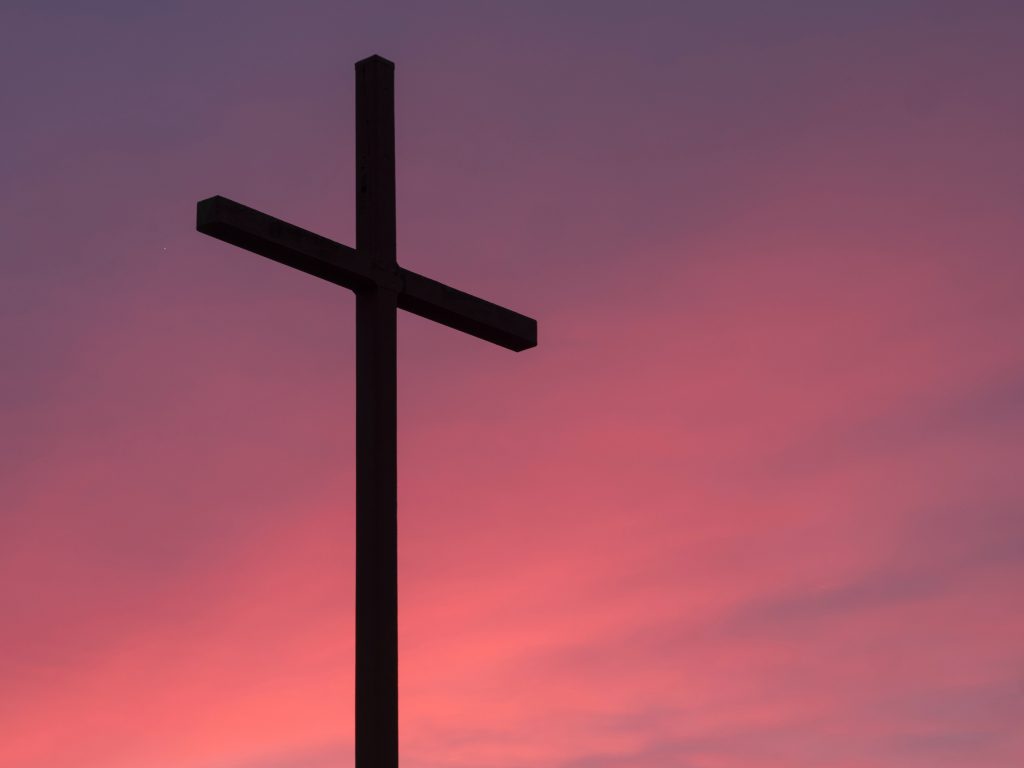If you are reading this on Friday, April 2, 2021, today is Good Friday. And if your raising was anything like my own, you may be thinking, “What exactly is Good Friday all about?” For many years, Protestants have shied away from recognizing days such as Maundy Thursday and Good Friday, for fear of seeming too Catholic, but these sacred days have been a part of church life for hundreds of years. Thankfully, in recent times, many Protestant churches are warming to the idea once more.
In essence, just as Easter celebrates the resurrection, Good Friday commemorates Jesus’ crucifixion and death. Services on this day consist of Scripture readings and songs focused on the cross, the taking of communion, and times of silence. Oftentimes the sanctuary is darkened, candles are lit, and congregants are asked to enter and exit silently. It is a somber service for a somber day in history.
As someone raised in church, Good Friday serves as an excellent reminder to me of the sheer gravity of Christ’s suffering on the cross and what that means for my life. Obviously, what happened at Calvary acts as the basis for Christianity’s very existence, yet how often I grow cold and callous to the depth of its meaning, the very wonder of it. The fact that the Son of God became a man, suffered unimaginable abuse at the hands of the Romans, took upon Himself the penalty for all humanity’s sins, was cut off from the Father, and died shamefully on a tree, is an incredible concept and not one to ever be taken lightly.
Thus, this Good Friday, I have been pondering what Jesus’ death truly means for my life. Of course, it means that my sins have been paid for (Praise God!), but how do I let it affect my everyday life? How does it change me? One could choose to answer that question in many ways, but my mind keeps being drawn to the concept of suffering. Jesus was the ultimate sufferer, and we are called to follow in His steps.
In Luke 9:23, Jesus familiarly states, “If anyone would come after me, let him deny himself and take up his cross daily and follow me.” I think when many of us read that verse, we think it means becoming a missionary to Africa or selling our possessions and giving them to the poor. For some, perhaps it might. However, I daresay for many of us, there are many smaller ways we can begin putting this verse into practice. For if we cannot surrender to God in the small ways, how can we expect to do so in larger ways?
Taking up your cross often means doing the right thing, the thing that will bring about the most good, even when it is difficult. That could mean sacrificing thirty minutes of sleep for thirty minutes of prayer in the morning. Choosing a salad over fried chicken. Crossing something off your to-do list rather than procrastinating by watching Netflix. If, every day, we chose to deny our flesh and listen to the Spirit’s voice in these kinds of areas, how much could our lives change?
Now, you may be thinking, “Is she really equating getting up early and eating salads to Jesus’ dying on the cross?” No, I certainly am not. However, I do believe Jesus’ death on the cross was the ultimate example of self-denial and the voluntary assumption of suffering, which should now serve as the model for how we live our own lives, though it manifests itself in much smaller ways.
Throughout this Good Friday, I would encourage you to spend time meditating on the cross. Ask yourself what it really means for your life—how does it change how you live? The answer may be sobering. Indeed, today is a dark day, yet it is not without hope. Because of what happened three days later, our suffering is never meaningless.
